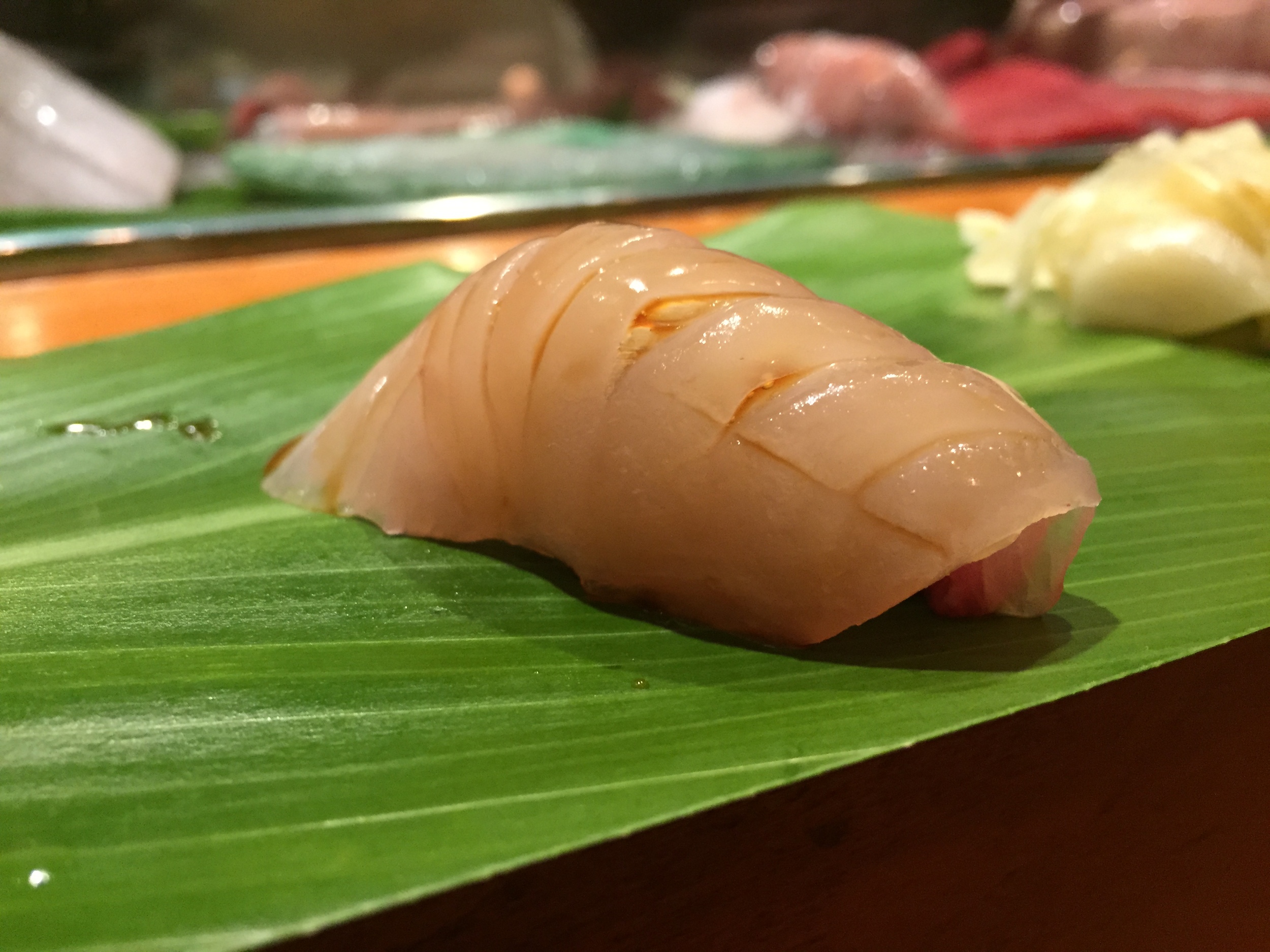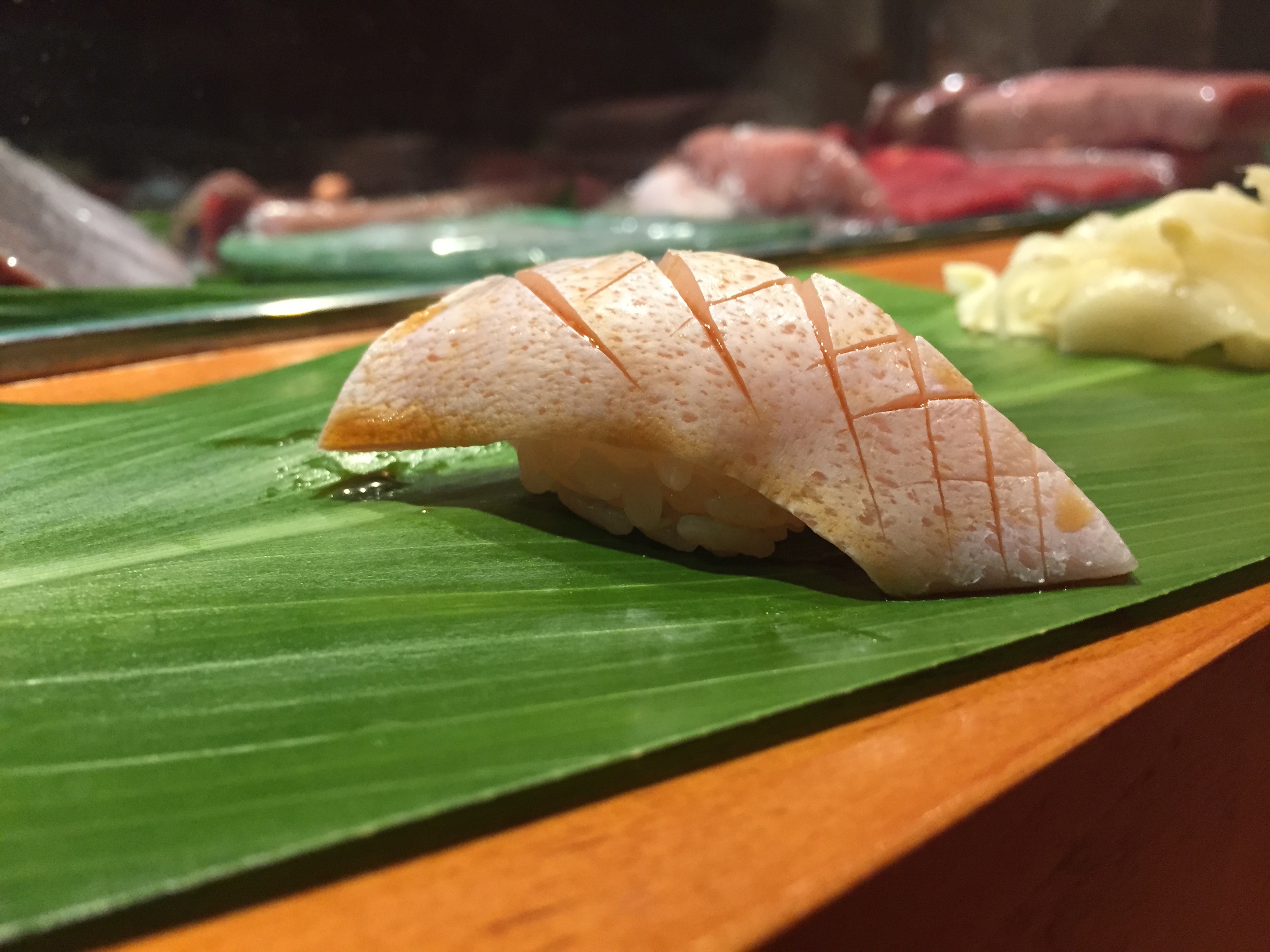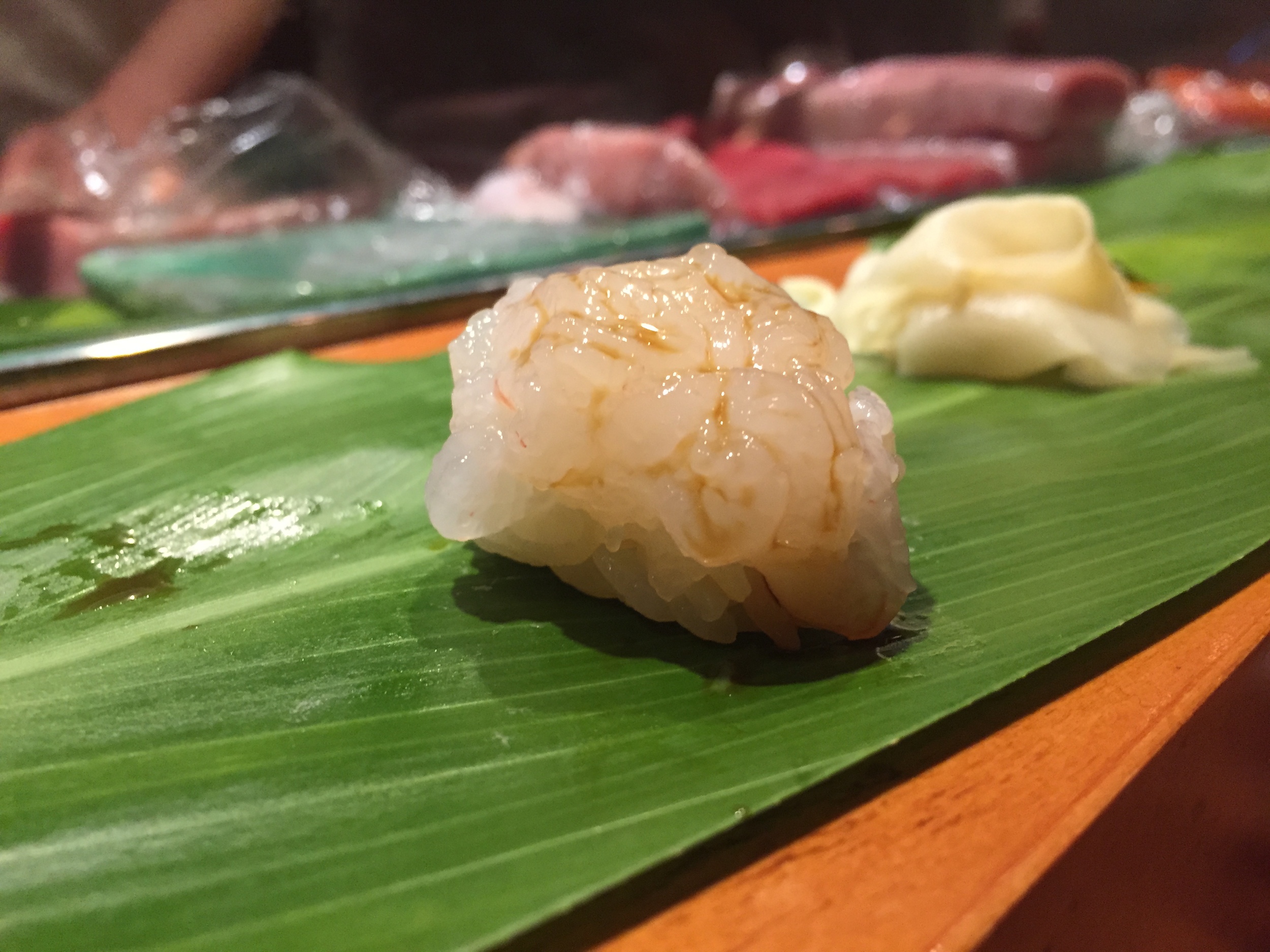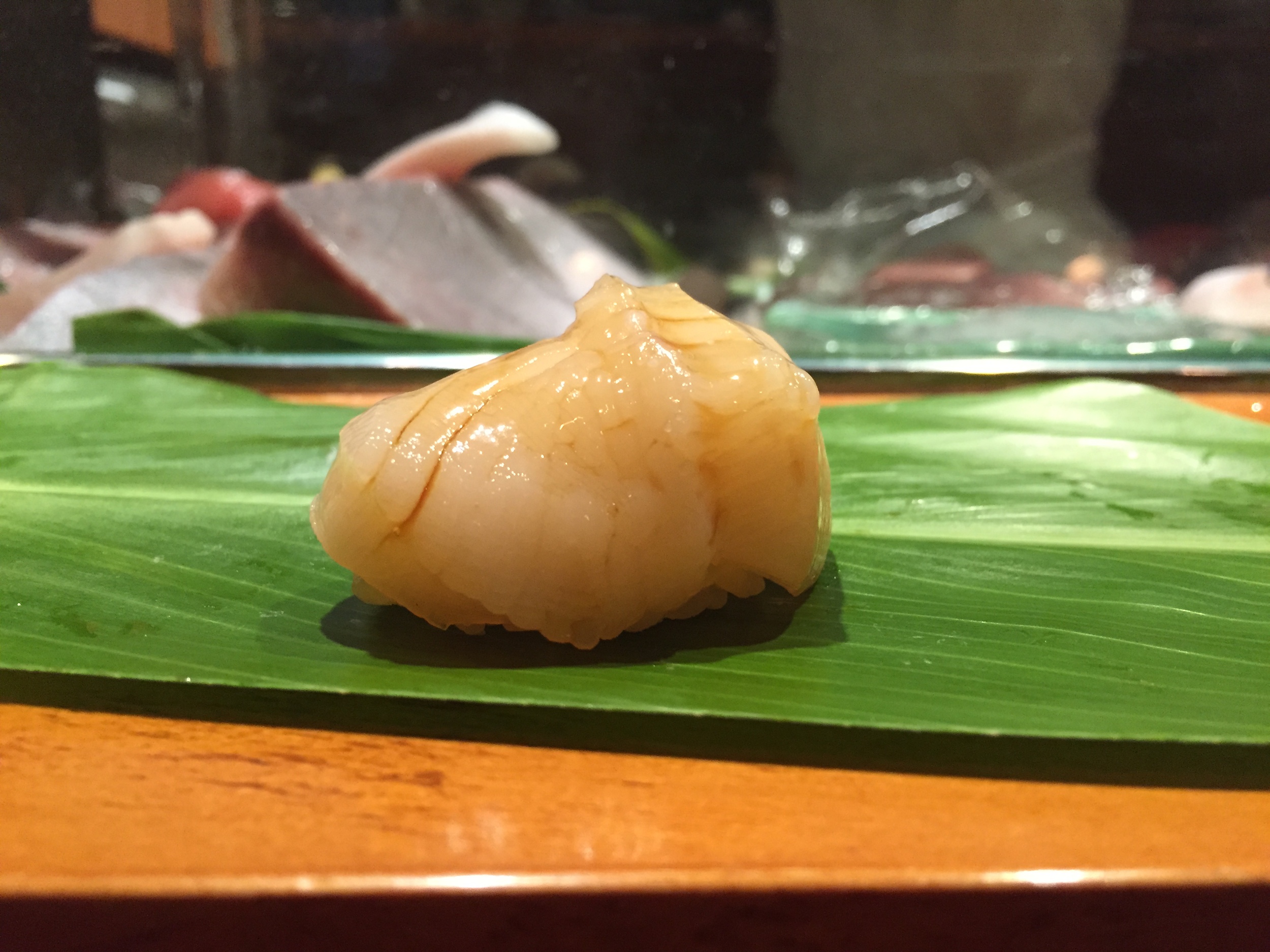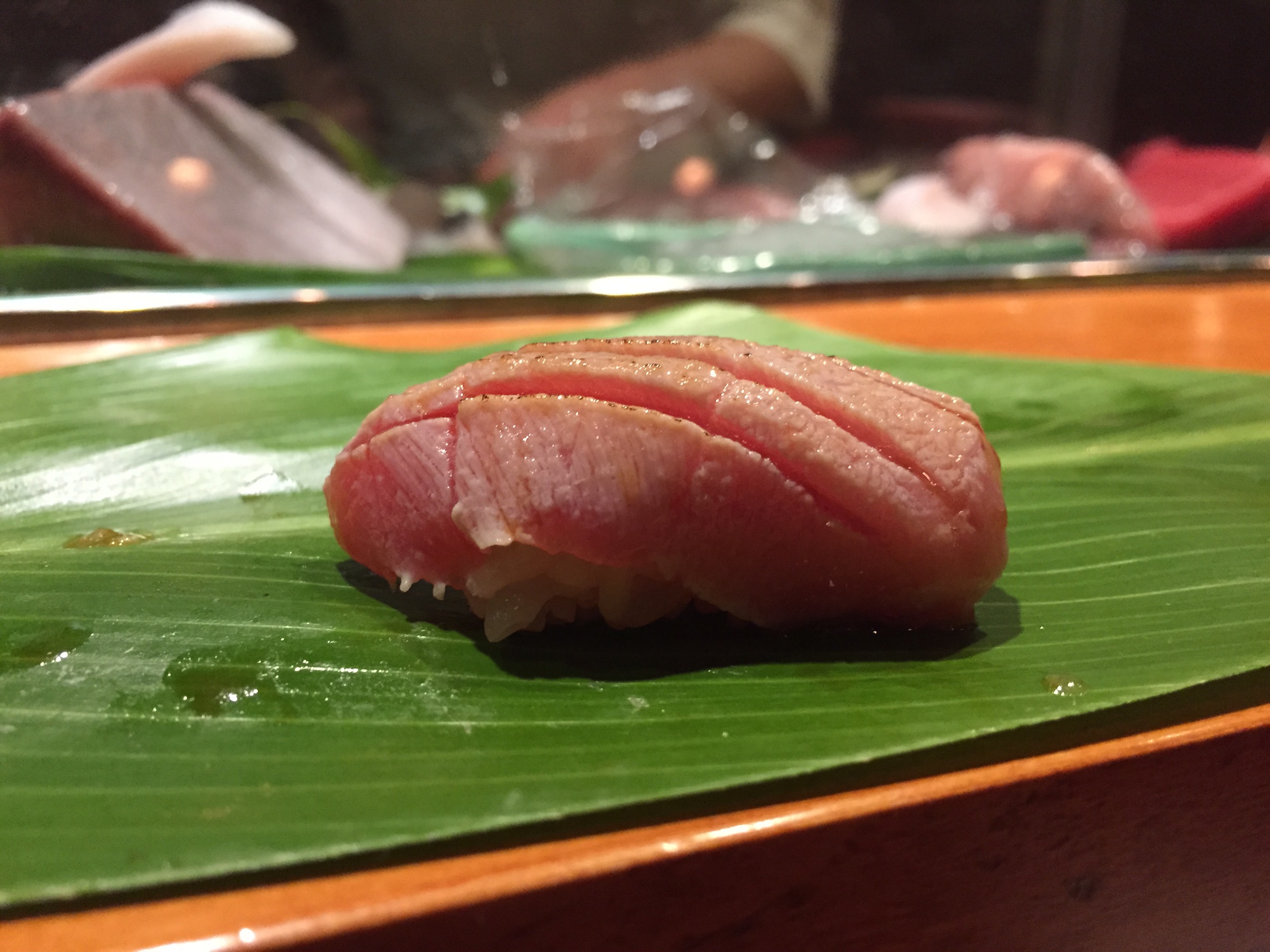Note: As of December 2015, David Bouhadana has left Sushi Dojo. My comment represent my experiences while he was head chef there.
- Cost: $70-$100, before drinks, tax, and tip
- Size: 10 seats at counter
- Style: sushi omakase
- Reserved: 1 week in advance
David Bouhadana is a young guy, but his time as a sushi chef stretches back for the better part of a decade. He spent time training at a sushiya in kansai ("in the middle of nowhere, near Osaka", he says) and returned to NYC in 2009 to open a short-lived shop on the Lower East Side. He then returned to Japan for some time and after, spent more than a year as one of Masa Shimizu's itamae at 15 East. He branched off on his own to open Sushi Dojo almost two years ago.
I mention all of this because Dojo, like some other more casual American sushiya, is pretty unassuming. From the outside, it looks like a neighborhood spot run by a white a guy. If you buy David-san a beer (as many customers are apt to do), he might take a small sip and make a Thundercats-esque "power-up" pose before resuming slicing neta. All of this belies the fact that Sushi Dojo (like the name implies) provides quite an authentic omakase experience.
There is no procession of artfully-planned otsumami as part of the omakase, and the menu looks to be crafted to equally satisfy those looking for authentic nigiri sushi as well as more casual diners. The best option is to simply sit at the counter and ask for nigiri. While the neta quality is perhaps not quite at the level of NYC's top sushiya, the variety of offerings is surprisingly wide - multiple types of uni, hikari mono, and various cuts of maguro are standard. The value for such variety and quality is probably the best in NYC, and potentially anywhere else in America.
The nigiri style is on the smaller side, but this does not impact the neta-shari balance, which is very good. The shari is of a medium-large grain size and moderately seasoned; it is generally well-prepared, but on average a little less firm than I prefer. The knife skills are also very good - slicing-styles that are the hallmark of more skilled sushi chefs (such as multiple thin layers of neta on saba nigiri) are apparent throughout the meal. Seasoning is also quite traditional, though a few excellent flourishes (such as aburi-uni temaki with yuzu kosho, or a gunkan-maki featuring a ponzu-marinated oyster) make infrequent appearances throughout the omakase. Theatrics notwithstanding, a live scallop that was opened, gutted and sliced before my eyes was every bit as sweet and succulent as you might expect.
Sushi Dojo is clearly targeted as a more casual experience than some of NYC's top sushiya, and the price point, omakase ingredients, and atmosphere of the shop all reflect that focus. If Ichimura, for example, is the kind of place you might only visit on a special occasion, Dojo is the shop that you could go to on a monthly basis. The skill behind the counter, overall value, and quality of neta offered certainly makes Dojo worthy of a visit alongside those other top shops.


